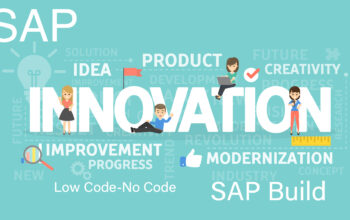Introduction
SAP certifications validate expertise in SAP solutions, making professionals highly sought-after in industries like finance, logistics, and IT. With over 150+ certifications available, choosing the right one can be overwhelming. This guide simplifies your path to becoming SAP-certified.
Why Get SAP Certified?
✅ Higher Salaries: Certified SAP consultants earn 20-40% more than non-certified peers.
✅ Career Advancement: Stand out in roles like SAP Functional Consultant, Technical Developer, or Project Manager.
✅ Industry Recognition: Certifications like SAP S/4HANA or SAP Fiori are globally respected.
✅ Skill Validation: Prove your proficiency in cutting-edge ERP technologies.
Top SAP Certifications in 2024 and 2025
1. SAP S/4HANA Certification
- Focus: Implementation, migration, and integration of SAP S/4HANA.
- Popular Tracks:
- SAP Certified Application Associate – SAP S/4HANA Finance
- SAP Certified Development Specialist – SAP S/4HANA Cloud
2. SAP Fiori/UI5 Certification
- Focus: Building responsive SAP Fiori apps and UX design.
- Exam Code: C_FIORDEV_22 (SAP Certified Development Associate).
3. SAP Analytics Cloud (SAC)
- Focus: Data visualization, predictive analytics, and business planning.
- Exam Code: C_SAC_2221 (SAP Certified Application Associate).
4. SAP ABAP Certification
- Focus: Core programming for SAP customization.
- Exam Code: C_ABAPD_2309 (ABAP with SAP BTP).
5. SAP SuccessFactors
- Focus: HR management and employee experience.
- Exam Code: C_THR12_2311 (SuccessFactors Employee Central).
SAP Certification Levels
| Level | Target Audience | Example Certification |
|---|---|---|
| Associate | Beginners | SAP S/4HANA Cloud ERP Integration |
| Professional | Experienced Consultants | SAP Certified Application Professional |
| Specialist | Niche Roles | SAP Ariba Supply Chain Collaboration |
How to Prepare for SAP Certification Exams
1. Choose Your Certification Path
- Align certifications with your career goals (e.g., Functional vs Technical roles).
- Research prerequisites (e.g., some certifications require Associate-level exams first).
2. Leverage Official SAP Resources
- SAP Learning Hub: Access courses, practice exams, and hands-on exercises.
- OpenSAP: Free MOOCs for foundational knowledge.
3. Hands-On Practice
- Use SAP Access or cloud sandboxes (e.g., SAP CAL) for real-world scenarios.
- Join SAP community forums for troubleshooting.
4. Mock Exams
- Test readiness with platforms like Udemy or ExamDumps.
5. Exam Day Tips
- Time management: Allocate 1-2 minutes per question.
- Focus on scenario-based questions (60% of exams).
Cost of SAP Certification
- Associate Exams: $500 – $650 USD.
- Professional Exams: $1,000 – $1,500 USD.
- Recertification: Required every 2-3 years (varies by track).
Challenges to Expect
⚠️ Rapid Updates: SAP releases new exams frequently (e.g., S/4HANA 2023 vs 2024).
⚠️ Complex Scenarios: Exams test practical application, not just theory.
⚠️ High Costs: Training and exam fees can add up.
Conclusion
SAP certifications are a golden ticket to high-paying roles in the ERP ecosystem. Whether you’re a developer, consultant, or analyst, aligning your certification with industry demand (like SAP S/4HANA or SAP Analytics Cloud) ensures long-term career growth.
Pro Tip: Pair certifications with hands-on project experience to maximize employability.




